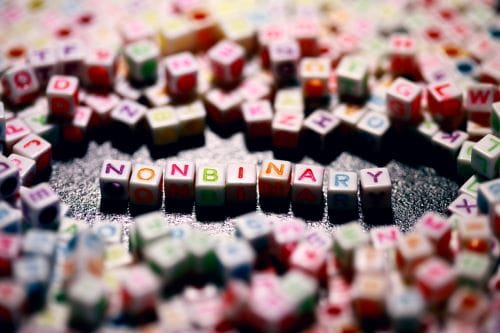March 31st marks International Transgender Day of Visibility when recognition of diversity within gender is spotlighted. Sharing books that feature diverse characters with children gives every child a chance to see themselves as the main character. Inclusive literature helps “children feel represented in the books they are reading.” Expanding children’s home and classroom libraries toward inclusivity can also help foster empathy. Books are a medium that can be shared one-on-one with children or in small groups to encourage personal discussions about differences and similarities among people. Reading books aloud creates opportunities for adults to engage with children of all ages to discuss issues of bias. Torrey Maldonaldo, a teacher and children’s book author, observes that “a good book can help you understand what it’s like for people who don’t share your race, religion, sexual orientation, or socio-economic status.”
As always, before sharing a book with children read through the text to make sure the content matches your children’s emotional and cognitive development. Not every book will be right for every child. If you’re looking for more book suggestions, ask your public library’s children’s librarian or check free online reviews with reputable publications like School Library Journal or Kirkus. In addition, use this guide to help you assess potential biases of a book.
Preschoolers
- Sylvia and Marsha Start a Revolution! by Joy Michael Ellison, Illustrations by Teshika Silver (#OwnVoices)
- Calvin by J.R. Ford and Vanessa Ford, Illustrations by Kayla Harren
- What Are Your Words?: A Book About Pronouns by Katherine Locke, Illustrations by Anne Passchier (#OwnVoices)
- My Rainbow by DeShanna Neal and Trinity Neal, Illustrations by Art Twink (#OwnVoices)
- Born Ready: The True Story of a Boy Named Penelope by Jodie Patterson, Illustrations by Charnelle Pinkney Barlow
- My Maddy by Gayle E. Pitman, Illustrations by Violet Tobacco
- Peanut Goes for the Gold by Jonathan Van Ness, Illustrations by Gillian Reid (#OwnVoices)
Middle-School and Tweens
- Obie is Man Enough by Schuyler Bailar (#OwnVoices)
- The Ship We Built by Lexie Bean (#OwnVoices)
- My Sister Daisy by Adria Karlsson, Illustrations by Linus Curci
- Rabbit Chase by Elizabeth LaPensée, Illustrations by KC Oster
- Different Kinds of Fruit by Kyle Lukoff (#OwnVoices)
- Too Bright to See by Kyle Lukoff (#OwnVoices)
- Both Can Be True by Jules Machias (#OwnVoices)
- I’m Not a Girl: A Transgender Story by Maddox Lyons and Jessica Verdi, Illustrations by Dana Simpson (#OwnVoices)
- Spin with Me by Ami Polonsky
- Ana on the Edge by A.J. Sass (#OwnVoices)
- Ellen Outside the Lines by A.J. Sass (#OwnVoices)
Teens
- Felix Ever After by Kacen Callender (#OwnVoices)
- King and the Dragonflies by Kacen Callender (#OwnVoices)
- May the Best Man Win by Z.R. Ellor (#OwnVoices)
- The Passing Playbook by Isaac Fitzsimons (#OwnVoices)
- Rick by Alex Gino (#OwnVoices)
- We Are Totally Normal by Rahul Kanakia (#OwnVoices)
- Stay Gold by Tobly McSmith (#OwnVoices)
- Gender Explorers: Our Stories of Growing Up Trans and Changing the World by Juno Roche (#OwnVoices)
- Somebody Told Me by Mia Siegert (#OwnVoices)
- Between Perfect & Real by Ray Stoeve (#OwnVoices)
- Cemetery Boys by Aiden Thomas (#OwnVoices)
- Who I Was with Her by Nita Tyndall (#OwnVoices)
- Beyond the Gender Binary by Alok Vaid-Menon (#OwnVoices)
About the Author

The opinions expressed in Montessori Life are those of the authors and do not necessarily represent the position of AMS. On this page |


